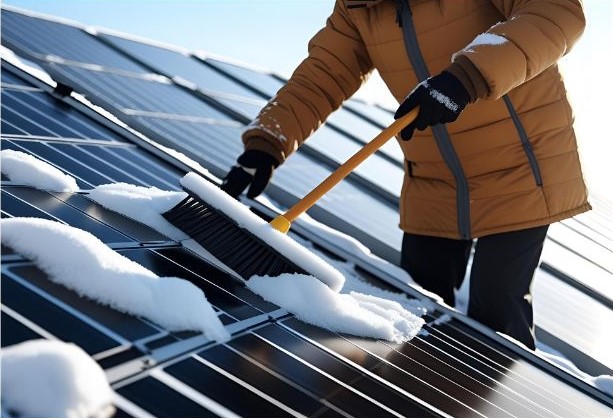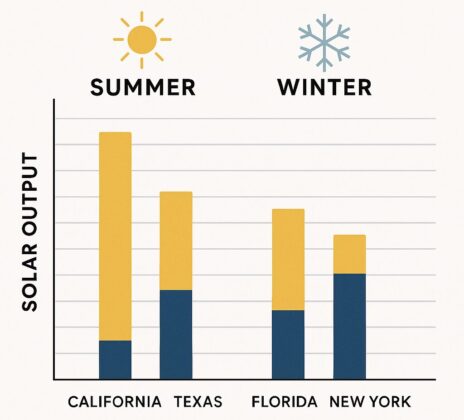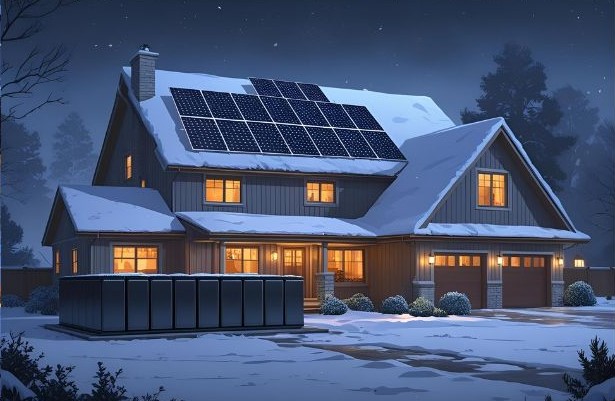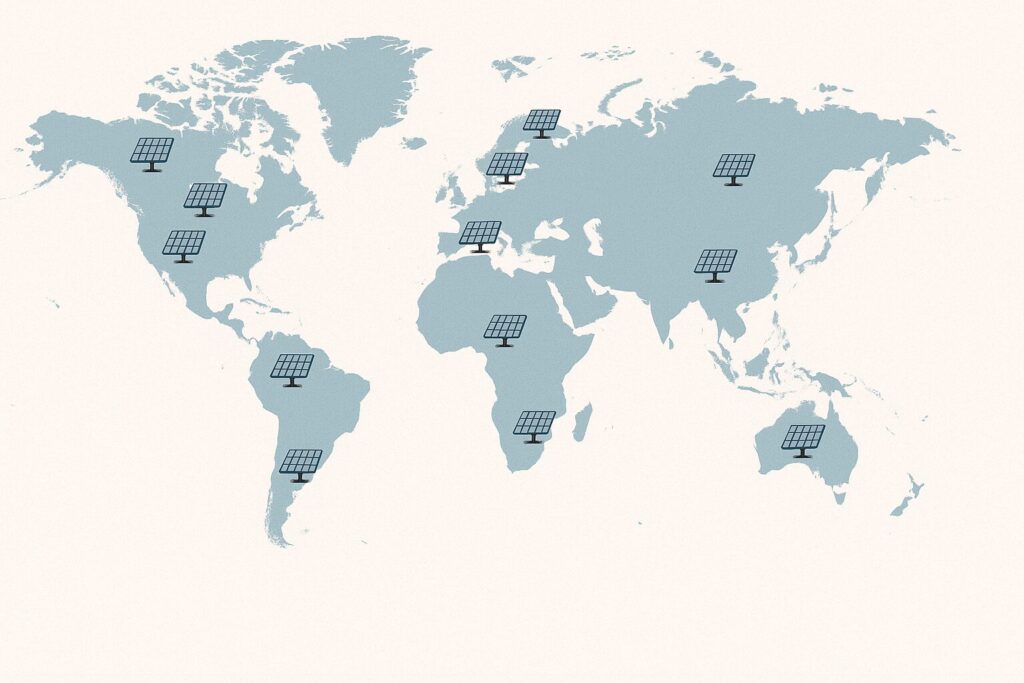Solar panels and winter — not exactly a match made in heaven, right? Snow, cloudy skies, freezing temperatures… it feels like solar power wouldn’t stand a chance. But surprisingly, the reality is quite different. If you live somewhere in places like Michigan, Colorado or even in Canada. You might be asking yourself: Are solar panels really worth when winter peaks? or Do solar panels actually work in the winter?
Short answer — YES!!
Long answer — let’s dive in and find out why.
Do Solar Panels actually work in the WINTERS ?
Do Solar Panels Work in Winter? Yes — Here’s Why
First things first, yes solar panels do work in winter. In fact they can even perform better in certain colder environments than in extreme heat. This is because, the solar panels convert sunlight (not heat) into electricity. So as long as the sun’s shining you’re always going to benefit.
Of course, there are a few catches. Almost everytime, the snow accumulated on the solar panel surface can block sunlight if it covers the panels completely. Also shorter daylight/sunlight hours means less sunlight, and less sunlight means less energy generation. But don’t worry — most systems are designed with this in mind.
Fun Fact: Germany, a country with long winters and limited sun, is a global leader in solar energy.
How Cold Weather Affects Solar Panel Efficiency
Believe it or not, but solar panels are more efficient in cooler temperatures than hot temperatures. Like most of the electronics, solar panels do not love overheating.
In winter the cold air actually helps reduce internal resistance in the system. That means when the sun does shine, even if it’s not for long, your panels can perform really well.
Can Solar Panels Still Work in Snow and Cloudy Skies?
This might sound a bit tricky but the explanation is very simple. If snow builds up and stays on your solar panels it will definitely block sunlight and lower your energy output.
But snow does not usually sit on the panels for long time. Why?
- The Panels are installed at an angle, this helps the snow to slide off and keep the panels operating.
- The panels are mostly dark in color hence they attract sunlight, because of this character they heat up and melt snow faster.
- A light dusting of snow often melts within a few hours of sun exposure.
Pro Tip: You can use a soft roof rake (with a foam head) to remove heavy snow, but be careful not to damage the panel surface.
Real-Life Success Stories of Solar Panels in Winter Conditions: Solar in Colorado Winters
One of our readers from Denver shared that their 6kW solar system still generated about 60-70% of their summer output even in December and January. That’s pretty impressive considering the snow and shorter days!
And since net metering lets you carry credits from summer over to winter, it all balances out in many areas.
(If you’re new to net metering, check this informative article from wikipedia: “What Is Net Metering?”)
Solar Panel Maintenance in Winter Conditions
In most cases, you don’t need to do anything. Your system is designed to handle the elements.

Here are a few winter care tips:
- Don’t climb up on the roof — safety first!
- Use a non-abrasive tool if you must clear snow manually
- Monitor your production via your inverter or app
- Trim trees to reduce shade (especially in winter when the sun’s lower)
We go deeper into system care in our guide here: “How to Maintain Your Solar Panels“
How Much Energy Do You Lose in Winter?
This varies a lot by location. Here’s a rough breakdown:
| Location | Winter Output vs Summer |
|---|---|
| California | 80-90% |
| Colorado | 60-70% |
| New York | 50-65% |
| Michigan | 40-55% |
| Canada (southern) | 35-50% |

It might sound like a big drop, but remember: most of the solar systems are designed to overproduce in summer to cover winter shortfalls.
Battery Storage = Winter Lifesaver
Adding a solar battery can really help in winter. During shorter daylight hours a battery stores extra energy from earlier in the day and that stored energy can be used at night.
It also adds backup power in case of grid outages — which happen more in winter due to storms and bad weather.

For battery options and specs, here’s a great comparison guide from EnergySage: https://www.energysage.com/solar/solar-energy-storage/compare/
Solar Performance in Winter Around the World
While this post is mostly focused on the western hemisphere, these winter performance insights apply globally too:

- UK & Ireland: Solar works surprisingly well on cloudy days.
- Germany: Heavy snow zones still use solar widely.
- India (Himalayas): Panels are common in remote, snowy areas.
Wherever you live, sunlight = energy, even in winter.
Final Thoughts: Do Solar Panels Really Work in the Winter?
Not really. Solar panel performance drops somewhat in winter, but not as much as people think. And systems are built to balance production year-round.
So, if you’re considering solar, don’t let winter scare you off. Snow melts. The sun shines. And your panels will keep on generating clean, renewable energy.
Let us know how your solar panels are doing this winter! Leave a comment or share your setup.
Related Reads:
How to bird proof & squirrel proof you solar panels
Solar panel mainteinance tips & tricks

